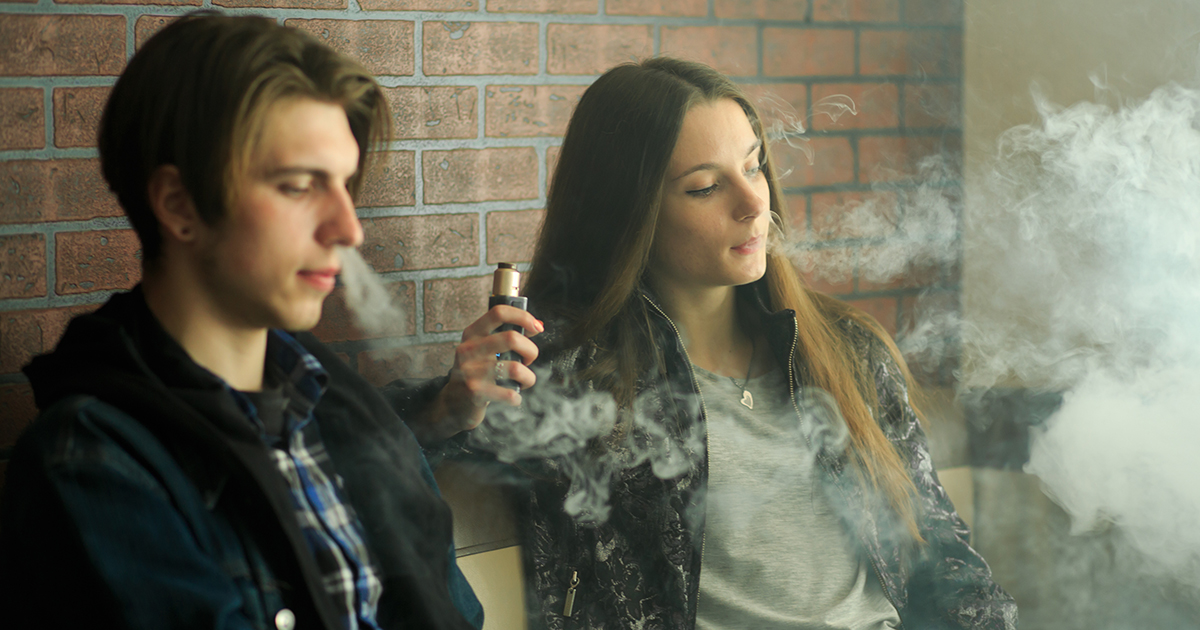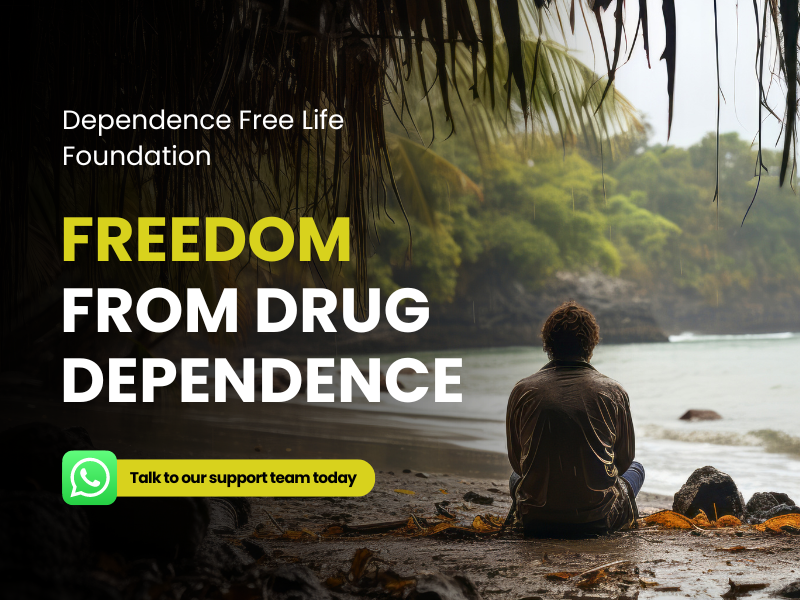How to identify tell-tale signs of addiction in your kids?
Identifying the tell-tale signs of addiction in your kids requires paying attention to behavioral, emotional, and physical changes. Addiction can manifest in subtle ways, and early detection is key to addressing the issue before it worsens. Here are some signs to watch for:
Behavioral Changes

- Secretive or Unexplained Behaviors — Your child may become more secretive, sneaky, or start lying about their activities, whereabouts, or who they are spending time with.
- Change in Friends — If your child suddenly changes their social circle, especially if their new friends are involved in risky behaviors, this could be a red flag.
- Dropping Hobbies or Interests — A sudden loss of interest in activities they once enjoyed, such as sports, hobbies, or spending time with family, may indicate substance use.
- Decline in Academic Performance — A noticeable drop in grades, lack of focus, skipping school, or disciplinary issues can point to substance abuse.
- Unexplained Need for Money — They may ask for money without a clear explanation or begin stealing money or valuable items to fund a habit.
- Changes in Eating or Sleeping Patterns — Addiction can disrupt normal routines. Your child may start sleeping excessively, staying up late, or experiencing irregular eating patterns, such as binge eating or loss of appetite.
Emotional and Psychological Signs

Searching Your Child’s Room
Some parents are against “snooping,” while others believe they have the right to look through their children’s things. There is no correct answer. Searching your child's room should be a decision you are able to defend. If you notice any change in your child’s behavior, unusual odors wafting into the hallway from their room (like pot and cigarette smoke), smells to mask other smells such as room fresheners, or other warning signs you need to find out what’s going on behind that "KEEP OUT" sign. Your child needs to understand that the limits you set with them do not stop at their bedroom door.
If you have decided not to tell your child about the search, be prepared to explain your reasons to them if she catches you mid-search. Let your child know that you are doing it out of concern for his or her health and safety. If you discover that your kid is not drinking or doing drugs, this could be a good time to find out if there's something else that may be on her mind.
Where to Look?
Kids come up with some crafty places to conceal cigarettes, alcohol, drugs, and drug paraphernalia. Here’s a short list of some possible hiding spots:
- Mood Swings — Unpredictable mood swings, irritability, anger, or aggression that seem out of character can be caused by substance use.
- Sudden Withdrawal — If your child becomes withdrawn, avoids family interactions, or isolates themselves in their room more than usual, it may signal that something is wrong.
- Anxiety or Paranoia — Drug or alcohol use can lead to feelings of anxiety, nervousness, or paranoia. If your child seems unusually worried or fearful, it might be due to substance use.
- Depression — Low energy, sadness, disinterest in life, or an overall change in mood may suggest that your child is struggling with addiction or the underlying issues driving them toward substance use.
Physical Signs
- Changes in Appearance — Sudden weight loss or gain, poor hygiene, bloodshot eyes, or unusual body odors can indicate substance use. Look for unusual marks on the skin, like needle marks or burns.
- Lethargy or Hyperactivity — Depending on the substance, your child may appear unusually tired and sluggish or overly energetic and hyperactive.
- Nosebleeds or Frequent Coughing — These can be signs of smoking, vaping, or snorting substances.
- Tremors or Shaking — Physical symptoms like shaking hands, unexplained headaches, or frequent nausea could be linked to substance use or withdrawal.
Also, search your kid’s cell phone speed dial list, BBM/whatsapp buddy lists for names you haven't heard of before. Ask your kid about any names you don’t recognize.

What to do if your child is smoking, drinking or using drugs?
If you discover that your child has been indulging in smoking, drinking or using drugs, we would emphasize on the importance of confronting your child for the first time. Here are some of the pointers that will guide you:
Kids come up with some crafty places to conceal cigarettes, alcohol, drugs, and drug paraphernalia. Here’s a short list of some possible hiding spots:
- Remain calm — If you start yelling, you’ll give your child a reason to storm out of the room, cutting the conversation short.
- Emphasize the importance of honesty —Explain to your child that it takes much more courage to tell the truth than to lie. Also remind him/her that liars usually get caught.
- Grant your child “immunity” — Promise your child that if she tells you the truth, there will be no immediate consequences, such as punishment.
- Verify his/her claims —If your kid is sticking to her story, say, “That’s fine, but I’m going to call [your friend or friend’s parent] just to make sure that’s what really happened.” Remember, you’re not trying to catch your kid in a lie, but you do need to know the whole picture of your kid’s world so that you can keep her healthy and safe. Contacting your child’s friends or their parents to ask about your own kid’s behavior isn’t overstepping your boundaries – it’s responsible parenting.
- Focus on the behavior, not the person — Your child may honestly fear disappointing you or looking imperfect in your eyes. Emphasize again and again that drug use is dangerous,but that your child is not a bad person if she’s addicted to drugs, drinking alcohol or smoking cigarettes.
Social Signs
- Avoiding Responsibility — Your child may start neglecting responsibilities at home, school, or work. They might make excuses to avoid commitments or perform poorly in areas where they once excelled.
- Problems with Authority — Increased conflicts with parents, teachers, or other authority figures, or brushes with the law, such as getting into trouble at school or being involved in risky behaviors like theft or vandalism.
- Frequent Absences — Missing school, extracurricular activities, or family events without a valid reason can be a red flag for substance use.
Drug Paraphernalia
- Finding Objects — If you discover drug paraphernalia such as rolling papers, pipes, vapes, lighters, or pill bottles, this is a clear sign of substance use. Be mindful of unusual smells or burns in their room or on clothing.
- Hiding Spots — Children might hide drugs or alcohol in unusual places like backpacks, drawers, under mattresses, or in the bathroom. Watch for empty bottles or containers.
Changes in Personality
- Loss of Motivation — Addiction often leads to a lack of interest in personal goals, school, or future plans. A previously driven child may seem apathetic or indifferent about their future.
- Increased Defensiveness — If your child becomes defensive or angry when you ask about their behavior, activities, or friends, it could be a sign they are trying to hide substance use./li>
- Risk-Taking Behavior — Engaging in risky behaviors such as reckless driving, breaking curfews, or experimenting with other dangerous activities can accompany addiction.
How to Respond if You Suspect Addiction
- Open Communication — Approach your child with empathy and openness. Avoid being accusatory, as this can lead to denial or defensiveness. Let them know you are concerned about their well-being.
- Seek Professional Help — If signs of addiction are present, seek advice from a healthcare provider, school counsellor, or addiction specialist. Early intervention is key.
- Set Clear Boundaries — Establish clear expectations around substance use and the consequences for breaking those rules. However, make sure that the focus is on support rather than punishment.
- Provide Emotional Support — Addiction often stems from underlying emotional or mental health issues. Be available to listen and provide emotional support, and consider therapy if needed.
Recognizing the signs early can prevent addiction from escalating. Regular, honest conversations about substance use and creating a supportive environment can also reduce the risk of your child turning to addictive substances.






